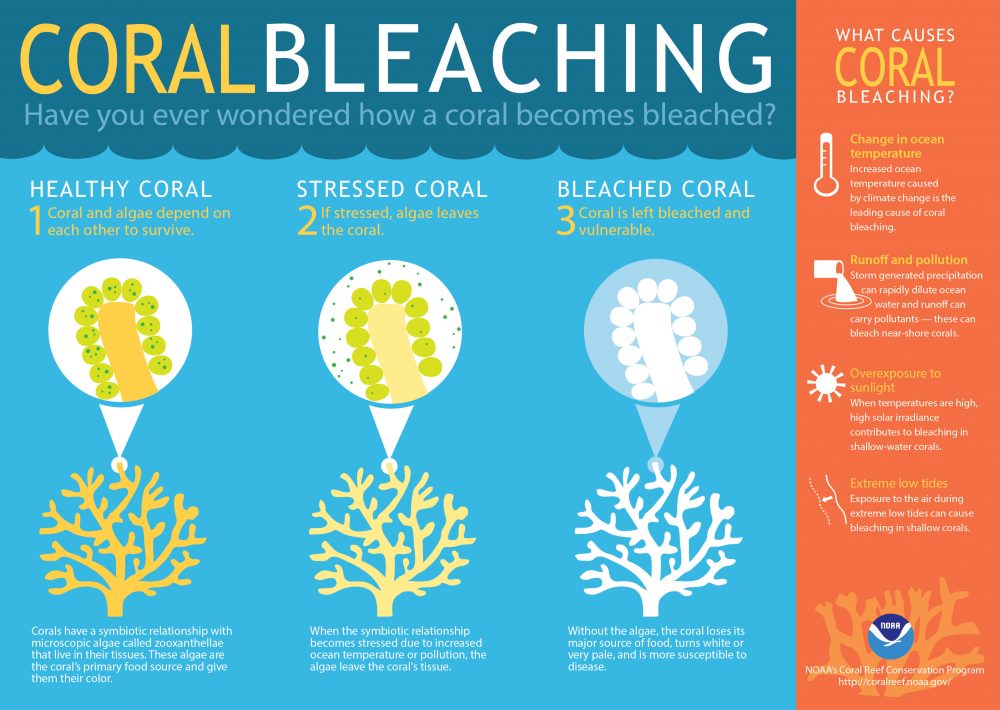Coral Bleaching 25/05/2019 – Posted in: Daily News – Tags: coral reef
CORAL BLEACHING
For: Preliminary & Mains
Topic covers: Coral bleaching, coral reefs, threats
News Flash
The researchers from National Centre for Coastal Research have found an alarming pattern of bleaching in the reefs in the Gulf of Mannar region in Mandapam, Keezhakkarai and Palk Bay.
Findings
They have found that sea surface temperature ranged from 28.7°C to 31°C in the August 2018-February 2019 period and there was no bleaching seen then.
However, when the temperatures rose to between 32°C and 36°C between March 2019 and May 2019, researchers observed a pattern of bleaching in corals, which was different at different layers within the sea.
Coral Reefs
- Coral reefs are important hotspots of biodiversity in the ocean.
- Corals are animals in the same class (Cnidaria) as jellyfish and anemones.
- They consist of individual polyps that get together and build reefs.
- Coral reefs support a wide range of species and maintain the quality of the coastal biosphere.
- Corals control the level of carbon dioxide in the water by converting it into a limestone shell.
Threat
- Coral reefs are threatened by climate change.
- When the sea surface temperature increases beyond a tolerable limit, they undergo a process of bleaching.
Bleaching
Basically bleaching is when the corals expel a certain algae known as zooxanthellae, which lives in the tissues of the coral in a symbiotic relationship. About 90% of the energy of the coral is provided by the zooxanthellae which are endowed with chlorophyll and other pigments. They are responsible for the yellow or reddish brown colours of the host coral. In addition the zooxanthellae can live as endosymbionts with jellyfish also.
When a coral bleaches, it does not die but comes pretty close to it. Some of the corals may survive the experience and recover once the sea surface temperature returns to normal levels.
Source: The Hindu
You can follow us on LinkedIn and for more updates related to UPSC IAS Preparation, Like our Facebook Page and subscribe our Diligent IAS Youtube Channel
Also Read Related Daily News


